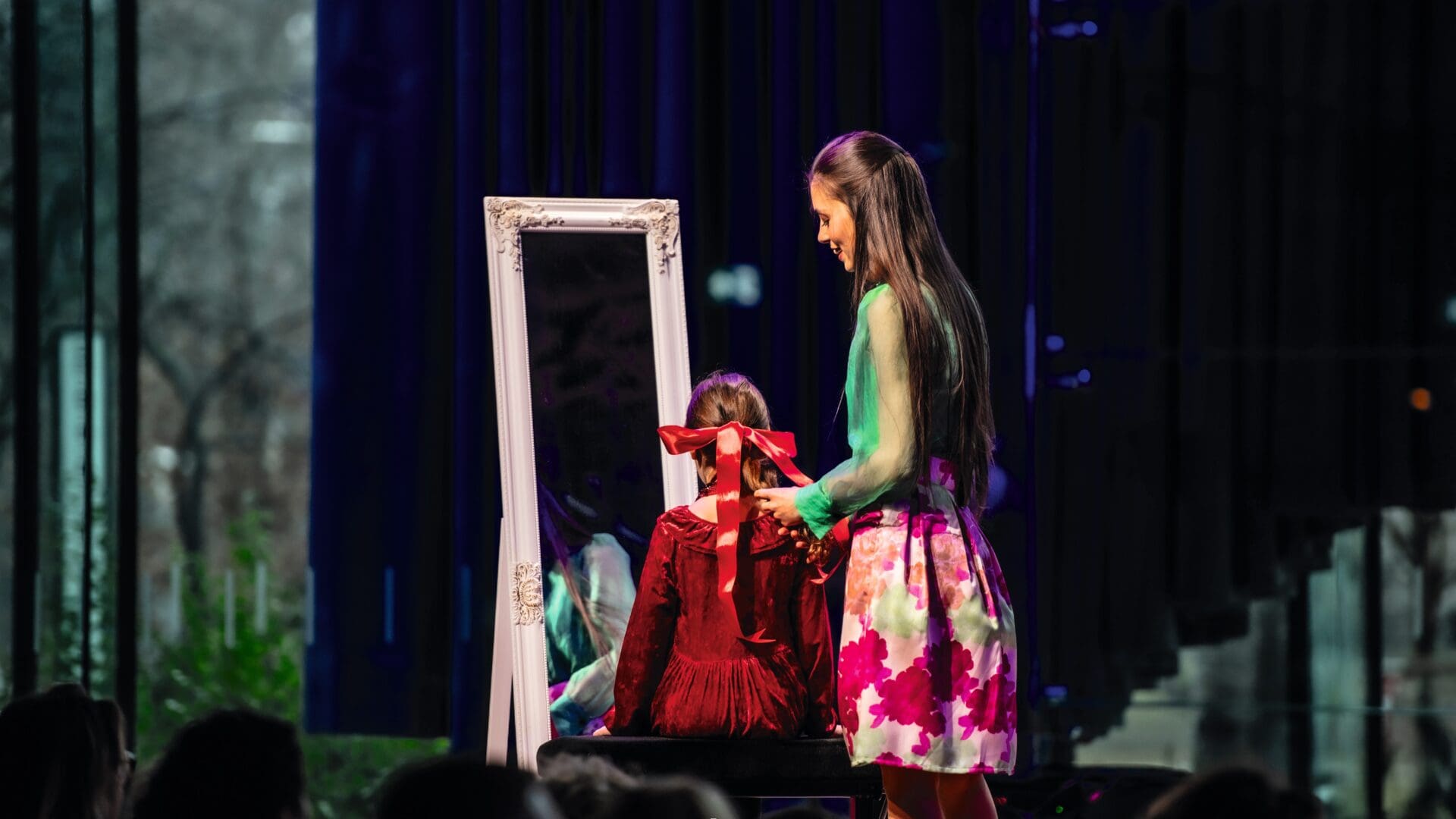The following is a translation of an interview with Slovakian Hungarian Lili Lakatos, conducted by Anna Demeter, originally published in our sister publication Magyar Krónika.
Accompanied by folk music throughout her whole life, she is on her way to a career in medicine, living by her inherited values. Magyar Krónika asked Lili Lakatos, daughter of folk singer Éva Korpás, about her plans and ties to her birthland.
***
Your mother said that it means a lot to her that her children would not choose another home for themselves, even if they had the opportunity. What makes someone feel so at home at such a young age?
I honestly believe that my brother and I have been given the gift of so many experiences, songs, and values that have shaped our lives in different ways. Just as my mother looks at her own grandparents, I am defined by her parents in the same way. My grandmother is sadly no longer alive, but my grandfather, at ninety-one, still lives his life with incredible strength and faith, working in the garden, and accompanying us to concerts. Just before this very interview, I was staying at his place, studying for my medical final exam there. It’s hard to describe what he and my grandmother meant to me, but I have always admired them individually, too. Through my grandparents’ stories, I could relate to their village life, their experiences, as well as my mother’s memories. Thus, in our family, Sunday lunch has never been a necessity, we just like to be together, to get together. I wouldn’t have it any other way.
You were born into folk music, which involves not only song but also dance and stage presence. Has this always been a natural atmosphere for you?
Music was always playing at home, I danced from a very young age, and when my mother was still singing in the Tükrös (Mirror) ensemble, the choir was made up of us, the children of the musicians, as we were about the same age. I was on stage already before I could have any inhibitions. That’s not to say that I don’t have them in other areas,
but I feel lucky that I was given this way of life. It was put in front of me, and I couldn’t imagine my life without it.
It gives me security. I dance in Bratislava (Pozsony) with the Szőttes Kamara Folk Dance Ensemble; we rehearse twice a week for three hours. In those three hours, I don’t think about what is bothering me, what I should be doing, or what I should be learning at all. I’m relaxing and recharging, just like I do when I’m singing in the community. What we thought was a game in the choir back then, accompanied us all along, and we had absolutely no idea where it would lead us once.
Yet you decided to continue playing this game only as an accompanying pursuit rather than a vocation.
To this day, I cannot give a precise answer as to why I chose to pursue a career in medicine. I never intended to be a singer—I played the piano, but I don’t play any folk instrument, and moreover, I took a break from dancing at the very time I had to consider a career choice, so it never crossed my mind. I never thought of myself as a blatant talent in any of the above, and there were plenty of other things that I was interested in. For a long time, I was preparing for the University of Theatre, but I also went to grammar competitions, and then chemistry and biology caught my interest as well. I always knew that I wanted to choose a career in which I could work with people. I spent a long time in the hospital when I was very young, where they saved my life. Maybe that is why I have the desire to help others, too.
How did your family take the decision?
As both my parents live in this world, they know both the beauty and depth of the profession. They have made it clear that whatever I choose, they and the music will always be there for me as a secure background.

So much so that you regularly perform in your mother’s recitals, and at the last fairy tale concert you even appeared in several different roles.
It’s interesting because I could never see my mother as a teacher or fellow musician. She practiced with me when I was little, and she still helps me today, but we have a different kind of relationship. It’s really on stage that I feel what it’s like to stand next to her, to appear with her. I think the performance Szívharang (Heart Bell) was my first defining experience:
listening to her recite or sing with her students she cherished from a very young age makes me feel very proud.
I look at her and know that I am not alone in this feeling. At concerts like this, we all strengthen each other with my mother and the girls. In the children’s performance Piripotty, I especially love the way my mother leads the piece and I complete her as a supporting character, as a co-singer. This piece is particularly exciting because it changes based on how the children react and how we communicate that to each other, the orchestra, and the audience.
This requires quite a great deal of attention.
But it is also instinctive. The protagonist of the story is a boy in love, who we accompany through his disappointments and joys. The concert at the House of Hungarian Music was the first time my mother had chosen a—familiar—boy from the audience to play this role, and later, at the end of the story, I picked a little girl. We knew nothing about her, I simply chose her. When the pictures of the event were posted on social media, her grandmother immediately wrote to say that she lived in Zurich, her father was Swiss, but that she takes her to a folk music concert here at home every January, and how wonderful it was for her to be on stage with us. It was especially nice to hear that.
Are mother and daughter as close in real life as they are on stage?
I would say it seems strong on stage precisely because there is a very strong harmony between us in real life, too.
Concerts, folk dance, medical profession—is it an easy vision to reconcile?
I can say yes. If I missed any of them, my soul would be much poorer. Without folk music and folk dance, I could not be myself. I’m sure it will be harder once I’m working, but for now, I’m hopeful. Somehow it always turns out that a bond is much stronger than I would think. I wanted to do my medical studies in Budapest because for me the Hungarian capital is a cultural canaan. However, in the end, I chose Bratislava because many people said that if I left here, I would never come home.
Were you scared?
Yes, and because I knew I wanted to live here anyway, I chose to learn Slovak. Today I regret it a bit because I think I would have come back, but I believe that everything happens for a reason. When I was in secondary school, I spent a year in Mexico as an exchange student. The first few months were incredibly difficult and weird, but Christmas Eve was the turning point. Until then, I had only seen I couldn’t go home, but that day the love of my host family made me realize what a privilege and opportunity it was to experience a different kind of home as well. It also helped me to know where I was coming from and where I was going, even though I had wonderful experiences.
How common do you see this way of thinking in Komárom (Komárno)?
On the one hand, Komárom is a lucky place in this respect, and on the other hand, I feel that my situation is much easier because of my ties. Thanks to folk music and folk dance, I can live the tradition, the culture, the community.
It is not so difficult to be Hungarian here. There is a reason to stay here.
Of course, I can see that we are on the very border here—many people leave, if not to Pest, then to Bratislava or the Czech Republic, and I don’t know if they will ever return. Those who make a life elsewhere find it harder to come home. But many of my friends think like me, and I trust that others see, too, that we have a job to do here. My grandfather often says that we don’t even know what a gift it is to be within arm’s reach of each other, to be there for each other in just ten minutes if need be. We are not alone.
Related articles:
Click here to read the original article.








